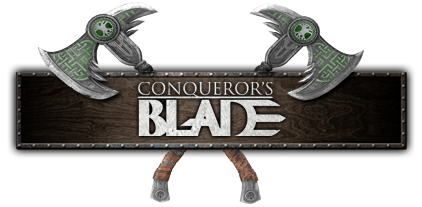Calton's Shadow, Pt 8
By: Peigra
She should have known, seen it coming, gotten an inkling of doubt when Temur had sent her, but she had been too wounded from the encounter on the farm, too bored from Meridian’s constraints, to see the warning signs.
There had been plenty before she had left Meridian.
There were many more in the time that followed her arrival at the clan.
It began before sunup, when she and Rira would rise, and go sit on the rock, waiting for the sun to rise. In an old, odd habit, Peigra had woken the second morning with some dried whiteroot on her mind, so she had found some in Rira’s stores and taken it out with her. Rira had her staff, Peigra had her handful of herbs, cradled in the swathes of linen that she was still wrapped in. It was the first of many odd stares in the mornings, one that many got used to quickly, seeing Rira and Peigra together, working in odd harmony together, as if they had done so in the past.
Knowing they had made it easier for the clan to accept, but it did not make it universal.
Day two had seen one of the women in the village birthing her second child, and Rira had been called in by the midwife. The birth was going to be difficult, they had known that ahead of time, for the woman had nearly died with the first one, and her second was swelling her stomach greatly, and she was early.
Peigra went, summoned by Rira, and took the small satchel of herbs that she had managed to put together in Meridian. The four of them were in the small tent that had been set aside for birthings, against one of the springs that was apart from the others, and there were two permanent firepits that had been constructed for boiling water and linens. Peigra had offered the duty of boiling the linens and setting them to drip while Rira and the midwife prepared the woman with herbs and soothing massage.
Somewhere, during the sun’s passage and the blanket of stars that dominated the skies, Rira turned the birthing over to Peigra, and nodded to the midwife’s confused look. “Her magick can do mine cannot in a different means,†Rira assured the woman, who turned her brightly colored face, pasted with tattoos in the colors of the midwives.
Dawn crested, Rira was on her rock, and the newborn’s cry echoed through the camp as heads turned to it.
Two of them.
Rira’s magick was the odd blend of Bahmi blood of old, and her magick was more spiritual, where Peigra’s was truly for healing, and Rira had, in the Before, turned all of the clan’s duties of healing and herbs to Peigra, recognizing quickly that the young woman was not Bahmi, but her knowledge was so great it had to be used. There was no shame to Rira in realizing that Peigra’s odd magick was superior to her own in a different way, and there was a necessity in showing the clan, quickly, that the current young woman with the oddly colored hair was what the clan needed.
Bundled and cleaned, the two babies, twin sons, would be the last children the woman had, though she finally had the sons she had wanted with her daughter. The midwife had counseled the woman, as they got her comfortable to rest, that any more children would kill both she and the future child, and it was in the best interests of herself, and her daughter and new sons, that three children was enough. A look to Peigra silenced her, and she said nothing, having been ready to recommend the herbs used to prevent births, and the young woman had held the tiny baby in her arms.
He was so tiny, the pair of them having been mashed together inside their mother and making her look gigantic, when no one had thought to ask if her bloodline, from the clan she had come from, had a history of twin births. Peigra cuddled the baby, so tiny and innocent, and held him as long as she was allowed. This, this was the reason she had come back, to watch tiny babies such a this grow, and learn, and upon their majority, to teach others that there were other things from war and murder and fratricide.
“We will show them to the clan,†the midwife stated, and with the other baby, left the woman to nap. Peigra rose, clutching the baby, and nuzzled its wrapped head, smiling. She would get to hold the baby a little longer, which suited her. He fit against her shoulder, his tiny head supported by her hand and the wrappings, and the maternal instincts that were within every woman came out as she and the midwife pushed open the tent flaps.
As was tradition, their father was standing there, waiting to see his new son or daughter, and had thought there was one baby and two cries, not two babies and two cries, and took the one from the midwife, and left Peigra with hers for a moment before taking it. With a gentleness that belayed his tattooed arms and the leather harness on his bare chest that held his arrows and his bow, the darts and the poison pastes for hunting, the man held both children aloft, and passed them to Rira, waiting patiently.
She took the one, gave it her blessing of birthing, growth and adulthood, and whispered something to it, and then exchanged it for its brother, and did the same. To the clan, she announced their names, a hand on each of their tiny heads, for twins were sacred, special, and often their birthings heralded change in the clan. The shaman of every clan named twins and saw that their teachings were monitored in case one of them, in rare times both of them, might be the clan’s future shaman.
Both babies were given back to the midwife, and taken back into the birthing tent, and Rira motioned Peigra to her side, and turned, leaving the folk to congratulate the new father and his daughter, clinging to his leg as she toddled, looking up at so many happy faces.
“You will explain what happened,†Rira said, clutching at the young woman’s hand and Peigra nodded. This was old Rira, wanting to know everything, and in the slow, dictatorial method that Rira had taught her in Before, Peigra spoke of the difficult birthing, the midwife’s surprise at one head and then the other, and the recommendations of no more children. Rira nodded, and squeezed Peigra’s hand as they walked, listening. “Did you recommend herbs for this?â€
“The midwife didn’t want me to say anything.â€
Rira stopped, and looked to Peigra, and opened her mouth and nodded. To Peigra’s surprise, there was a flush on the old woman’s face as she nodded. “I forget that, here, you are new to us all again, save myself, and they see you as an intruder, a stranger. I will speak to her, to both of them, but what would you have told her?â€
The questions began, and Peigra felt the same familarity with them as she had in the other lifetime. Rira’s questions always demanded answers, right or wrong, but answers all the same. The herbs were ones Rira nodded to, and kissed Peigra’s cheek gently as they got back to the tent. “I will bring food. See that, when I return, you have your herbs out for me, on my mat.â€
“My herbs?â€
“You have knowledge from a time I have never traveled, Ran`tk, knowledge that I would know as well.†She wiggled her fingers into the tent. “On my mat.â€
Peigra sighed, but nodded, and left Rira as she went into the tent, and settled herself in the middle of it on the great, woven mat that provided a brief respite from the sand below.
The idea had not been a new one to the Bahmi, whose healers often carried around small pouches of herbs in case of emergencies, which in the desert, there always were. In the Before, Peigra had studied the many different herbal pouches and had gone to a friend who was good with leather stitching and had commissioned him to make her a belt with many pouches attached, that could ride low on her hips if necessary. He had taken small but flexible bits of leather, making the pouches engorge when full so they made her look as if she had growths around her waist, and he had looped it twice around her waist, giving her not only a long line of available herbal storage, but he had also put leather loops for small vials at the side of each hip, where weight could easily be distributed. Peigra had paid him well for his work, a belt that could be as it was, a belt for a tunic, or a bandolier-like thing that she could heft over her shoulders if she needed to swim or run quickly and there was risk of the belt catching something low.
Each pouch could expand larger than a man’s hand, and with ingenuity and practice, Peigra had compacted most of the known herbs into smaller, wrapped linen bundles by use, such as flesh wounds and another for deeper lacerations, and a different one for sword wounds. In the Before, her largest pouches had contained the death herbs, that put someone to sleep and gave them the release of the pain, and of a body that had been too wounded for recovery. And due to popular demand by a certain someone, the one against her navel was where she kept a large wad of waxed paper, glued around a chunk of honey that she had infused with herbs and spices and small bits of grasses and seeds.
Healer though Peigra was, she did have her priorities, and not having to walk was one of them, not when she could easily outride most her attackers on Balik’s wide back.
Honey had not been in great supply in Meridian, not in the Now, while Peigra had been there, so her stock of honey balls was low, and honey was not a rare find in the deserts. One merely had to look for the hives and wait for a good time to extract their treasure. Many of the Bahmi made artificial hives, huge clay structures with one opening, looking a gigantic vase tipped on its side, but one had only to put their hand against a side and feel the warmth and the hum from within. On the side of each clay hive was a hinged flap, where the honey and comb were extracted in small chunks as necessary.
Despite its dead appearance, the desert supported bees in great numbers, who not only found enough to forage off but were heavy honey producers, and often given the same treatment a child would in the clan. Honey was not just a tradeable commodity, but a survival food as well when game was scarce. Hives were nurtured and many of the producers traded good swarms with one another, as well as ideas and bragging rights.
Someone would have honey in the clan, or know who did in the neighboring one, and Peigra knew it would cost her some coins due to her being a foreigner.
“Hoi!â€
She looked up from unbelting her herb collecting from her waist and spreading it out on the mat, and waved to Xanik, who did not enter and she left the tent instead to greet him. “You are rested I see?â€
“Rira’s babying me,†she said, but there was a grin there that they shared, and Xanik nodded.
“I am called to bring supplies to some of the other clans. You will be safe here, and tended well,†he added with a chuckle. “Does this bother you if I leave?â€
“No,†she said, without hesitation, and neither seemed surprised at her admission. She had known Rira was alive, and that the woman remembered her was a bonus, and they had much to share again. Peigra was safe wherever Rira was, and the clan that had embraced her in the Before probably would again in the Now. “I’ll be better off here, where you don’t need to worry about Baltik chewing the tails off your vaiyuu.â€
Xanik laughted at her and patted her head, or the linen that is, that was still wrapped around her salve-encrused scalp for her sunburn. “You could be a wealthy woman if you let him go south with us. You had not heard? The horsemen are bartering who will offer you the most coin.†She giggled, but nodded to that, and was not surprised. Baltik would be a prize that every horse breeder and trader would want with his mares, and there was nothing wrong with bartering, or selling, those rights if Peigra needed connections or coin.
He hugged her, carefully, and patted her head again. “We will return. If you have need to leave before we do, Rira will provide you with escort back to Meridian.†A generous offer, and Peigra nodded to it. She hoped the offer would not be necessary, but there was no telling how the clan would react to her in the long term. War had made it easier in the Before, and there was war here also, but not the great, encompassing, sky-darkening, land-swelling nightmare it had been then.
“I’ll be here,†she said, and got a pat on the head again for her promise. Xanik left her as she returned to the tent, and her belt, and started to open the pouches and extract the herbs within, setting each tiny linen bag out on the mat. Xanik’s leaving meant they would be gone some days, or weeks, dependant on where they had originally been scheduled to go, and staying with Rira was not a great chore as opposed to a welcome treat for Peigra.
The midwife, and Rira, appeared with food not long after, and the three sat down around Peigra’s pile of herbs to discuss them all and their properties, as well as the woman who had birthed the twin boys. Midwives did not often encourage women to stop their childbearing, but they were also trained to be honest, and as with the shamans of every clan, midwives were neutral and often clan mediators in debates.
It felt refreshing to be talking openly with Rira, and the midwife, whose name was Misadal, on not just herbs but womanly matters, and how the clan was faring from that perspective. Temur had been kind, but he had been male, and there were some mysteries that men of any race or culture could not understand, as there were male mysteries women were not privy to.
Despite Misadal’s confusion as to Peigra’s coming from the past, and present, they found neutral ground on the birthing, and on the babies, which every woman in any clan could talk babies until they fell asleep. Herbs were also another subject, as every mother had her favorites for soothing the babies when they were restless, and with two young children of her own, Misadal had many suggestions to add and smile over, as not all of them had worked. Every child was different, and no two children were the same when it came to cuddling them to sleep or herbal teas.
Flattened bread, spread with spiced beans and flaked meat, was filling, and despite the uneasiness, the three passed most of the day, both before and after the nap, talking of herbs and their uses and many of the ones Peigra had that Rira and Misadal did not recognize. They helped Peigra unwrap herself from the linen, inspected her sunburn and went to the hot springs to bathe, and share more stories.
The elderlies, or as Rira enjoyed calling them, the true leaders of the clan, who knew every secret if one asked, were also at the hot springs, and were just as curious of Peigra as she was of them. It passed a pleasant day, listening, learning, and exchanging information and stories, and only the fact that none of them were as old as they had been, Before, was what gave Peigra an oddness. There were faces missing, and that, she had been told in Meridian, was expected, as playing with the timeline had not assured that everyone in the past had survived to adulthood, or even been born.
Rira made no excuses for sitting Peigra beside her at the meals, and reminded anyone who was disturbed that a guest, and neither a Bahmi nor an apprentice, was beside the clan’s shaman and seemed to have been born there, was not always just a guest, and was sometimes a piece of the past that needed to be remembered, and renewed. Peigra kept to herself unless she was spoken to, feeling the growing tension in the clan that Xanik had moved on with his men, and Peigra remained behind, and had been attached to Rira by the old shaman’s decree. She kept her answers as brief as she could, but was quick to inquire on those who asked her how they were, their lives. Many of them found it easier to believe she was a messenger, one of the ones who often traveled along the clans bringing news of Bahmi afar, in the skirmishes and proving themselves in other lands.
By the third day, the routine had been established, that in the mornings, Peigra took the children to learn how to swim, and was heavily doused with salves and linens to keep her from becoming a cooked shellfish. The mid meal was had, the nap ensued, and later in the afternoon, as the sun was barely cresting the spines, the elderlies snagged Peigra as they could and caught her in their web of stories and toothless laughter and tales of their youth and other clans. She enjoyed being with the elderlies, as they were not afraid to have her work her magicks on their gnarled hands and their aching backs, and were grateful as she moved among them and gave them a respite from their ills.
She made it a habit to always come with a pot of tea, and shared it by pouring each cup with a kiss against a cheek, which brought her many in return.
The elderlies were not misused, and did their share of duties with the clan, most of them no longer able to see well, or hear, and a liability on a hunt when silence and sight were necessary, but that did not bar them from helping prepare the children, cuddling babies while their mams wove cloth, teaching the children to read. Those whose hands had been injured in hunts were surprised that their hands were slowly coming back to flexibility, and looked to one another, and to the oddly-haired young woman who was filling their cups with her strange teas.
Rira heard the first whispers that second day, and by the second week of Peigra’s insertion into the clan, there were few objections to her staying. Rira had a great authority in the clan, and if she wanted someone who was non-Bahmi, who was not afraid to take on all the children and teach them to swim, and willing to go on the hunts for meat or check the snares, and do the washing, who was to object? Even the children balked at most of their chores, but did them all the same in the end.
It was an easy routine to slip into, and Peigra enjoyed it, She did what she could to ease the pain in the elders, having learned in the Before that taking all the pain away might make people do stupid things and harm themselves. Small magicks, small uses of it and her herbs, could ease pain and give some flexibility back, a bit more sight, a tinge of hearing, but she was cautious not to prolong what needed to end.
Two elderlies who had been brothers in the hunt for many years chose their time, and asked that Rira, and Peigra, oversee their going. Many elders knew when they had used up their usefulness to the clan, and willingly went into the endless sleep, surrounded by their family, their clan, and the knowledge that what they had learned had been passed on, and there was nothing more they could do or tell. The two brothers were given a great feast and their lives celebrated, with much enlarging of their tales of hunts in the past, and many of the children they had taught were with older children of their own now. Some of the neighboring clan came to celebrate also, and Rira had welcomed the shaman with a kiss against the cheek.
That the shaman had enfolded Peigra in his arms had not been odd, but that they were acting as if they had known one another before, as Rira did, pursed a few lips of the guests. Nal had no objections to Peigra, but then again, he had been warned by Rira, as all the shamans had.
With Nal, though, were four other shamans, from other clans, who had come, and that in itself had been odd. The two brothers welcomed them to the feast in their honor, a feast they did not eat from, and heartily embraced one of the shaman who came with Nal, he being a true blood-brother and it would be their last time seeing one another alive. It was an odd night of celebration, stories and dancing, chanting, and when the moon was high over the clan, they went down on their mats of linen, staring up at the stars, and began accepting the cups of tea from Rira.
Shaman were not the only ones who knew the death herbs, but most clans gave the duty to the midwives or their shaman, and the two men had asked that Peigra be the one to prepare the tea, and they had kissed her their thanks as they accepted the first cups. She had kissed each leathery cheek, and sat in front of them while they drank, and took their second cups. By the third cup, one of them was already woozy, the other easily drinking the third, and helped his companion take his drink. Four cups, and one needed to lay down, and they did so together, taking their cups and closing their eyes.
It was not Rira, but Peigra who slipped between them, feeling each neck with her fingers as they lay together on the linens, and she began the dirge, feeling their hearts slow and then stop near dawn. It was unusual for an outsider to know the song of passing, but she knew it, as she had sung it many times, not just for the clan in Before, but for other Bahmi on the battlefields whose names she had memorized, for when she would return and let their clans know, at last, their fate. They were wrapped and carried to the pyre, and as the flames danced around them, the clan celebrated their lives, their loss, and that their knowledge would never die, as it had been passed on.
By the first month, all the shamans had come to the clan, and were not interrogating Peigra, but watching her, and watching the clan’s reaction to her. Despite their previous misgivings, she had quickly become one of them, and that she knew their ways had prickled at first, and then been accepted. The shamans inspected the child whose broken arm Peigra had set, and the four children born since her return to the clan. Several pregnant women were questioned what Peigra had given them for recommendations of foods and exercise, and Misadal had nodded her own approval.
The shamans watched, they spoke among themselves, and gathered themselves apart from the clan, in a special tent that had been erected on the other side of the rock where Rira welcomed the sun. Peigra was left in Rira’s permanent tent, and found it a bit lonely, but she was not blind to what was happening. It had happened before, just before she had gone away in her previous life, before the world had begun its spiral without hope of recovery.
Three days deliberation, and the clan was uncertain what was happening, but something was, and many glanced to the tent and were not certain what was being discussed. Was Rira being reprimanded for taking Peigra as an apprentice? Had something come from one of Xanik’s scrolls? Were they being asked to send more warriors to the battle? No one knew, and the clan continued as best it could.
Misadal invited Peigra into her own tent while Rira was gone, and with her two children, kept Peigra occupied between other duties. The oldest, barely eight, was a beautiful son with such great eyes that Peigra often teased him that he would be vying with Baltik for the most handsome male in the clan. The younger, a beautiful daughter who would almost be Misadal’s twin when she grew, was often found crawled into Peigra’s lap and stuffing dried herbs into her mouth as Peigra did, the pair of them chewing loudly and giggling.
Baltik was taken out often on the hunts, as Peigra had been asked to remain with the clan, and she had given use of the horse to the elder huntsman, whose sheer delight at the prospect of riding Baltik had puffed his chest out for days. That he was not only a short man, for a Bahmi, but lean and not heavy was an added relief, and Baltik was on his good behavior on the hunts.
The appearance of the group of shaman at the evening meal was sudden, the shadows growing as they came in a tight group, and space was made, mats brought out, and they sat and ate with the others, and said little of why they had come as they ate. Peigra remained with Misadal and her two children, and the two shared a shrug, encouraging the children to eat and not stare.
Gar, the eldest shaman, rose, and asked for quiet from the clan, and Peigra wanted to hide. She knew what they had decided, and hoped it was for the best, as she could do nothing once it was decided. She hoped Misadal would understand.
He took his time, thanking the clan for their hospitality, their kindness, and their understanding at such an odd thing that they had discovered. That they had all known Peigra in the Before, as she had known them, was not as much as surprise now as it might have been weeks earlier, and Gar reminded all of them that there were other lands, other ways, and not all were evil or dangerous to the Bahmi. Certainly many allies had been found, and there were the rare occasions where those of other lands came into the clans and were part of them permanently. Was there not a handful of them in other clans, who were not Bahmi-born but were clan now?
He spoke that it was odd for someone to be in a clan in two lifetimes, but were not all the Bahmi born in some other life, and came back eventually to another life? There were many ways to serve the people, the clan, their ways, and it did not mean that what had been learned, demonstrated and experienced had to be Bahmi-born alone.
“Rira has spoken that her years are beginning to wane, and her time is still many many moons away from ending, but she has chosen an outsider for her successor, and we have debated this, and we have accepted this. Does the clan find objection to our agreement that Peigra will fulfil being the next shaman?â€
Beside her, Peigra felt Misadal hugging her, and all that she had eaten threatened to come up. This was wrong, this was not why she had been here. In the Before, she had been the clan’s future midwife, not Rira’s successor, and she stood, or tried to, as Misadal’s two children tackled her with hugs and kisses. Others were coming over to kiss her, and Peigra was shaking her head. This...this was not what she had expected, and was finally lifted up, trying to still her stomach, and broke away, barely, from the group and left what she had eaten on the sands as she knelt vomiting. She was not Bahmi, she was not one of them, but she understood them, she had lived with them in two lifetimes now, and yet...Rira was the clan, and did she not know what was best for them?
Familiar hands held Peigra’s head, and she rested her cheek against Rira’s legs as the woman knelt beside her on the sands, stroking her braids as she wept. “Why me,†she gasped out, and Rira only bent to kiss her braids.
“You know what is coming, and you must prepare us, so that we prepare others,†Rira told her, and Gar knelt on Peigra’s other side, and the other shaman circled her, as did the clan. There, lying on her side, crying, panting, Peigra felt Gar’s fingers, smeared with the pastes that were collected and mixed only by the shaman, and they began to paint her face as Rira sat her up. Along her nose, above her eyes, her neck, they opened her tunic and smeared a great stain of it, with writhing lines, to mimic the scar that had been there the last time she had seen many of them in the Before. That they had known of it, where it was, what it had looked like, was not so frightening as Baltik’s nose nibbling one of her braids from behind. Even he was not to be left out, and was painted by some of the shaman, for Baltik was as much a part of Peigra, in either life, as Rira was.
They painted her hands, her feet, her belly they each circled with different colors, each shaman using a finger to paint a new color on the circle that tickled, but also signified their acceptance in the circle. Her hair was lifted, and the tattoo from Before was smeared in paste also and made her twitch as she wanted to itch at it.
Her palms were painted as well, and the knife taken, and Peigra’s hands closed around it, and she felt the quick slip of the metal and knew she was bleeding, and hands, so many hands closed around her, feeling her blood, mingling with their own as they all sliced their hands and exchanged blood and began to chant, and the clan joined in. She would have preferred being a midwife to this, anything but this.
The moon began to hang low over the spines, the stars danced, and the clan danced with them, dancing and shouting and chanting around the shaman, around Rira their clan’s shaman, and now around Peigra, who was their future, and would be so enmeshed into their lives now that there was to be total acceptance.
Sometime, near dawn, they carried her up onto the rock, and as a group, they all sat, waiting for the sun, some drunk from the spicy distilled drinks that had been passed around, and Peigra tried not to hiccup from them as they sat. It was taking an effort to sit up, let alone sit still, and she tried, and succeeded until the sun came up over the water, joining in the chant that the entire clan was saying, gathered around the rock around them.
She leaned over, and fell asleep in Rira’s lap, the woman’s leathery hand on her head, soothing her dreams. Back to the tent, where all the shaman gathered themselves, scattered around and curling for sleep, satisfied they were preparing for what was coming.
























